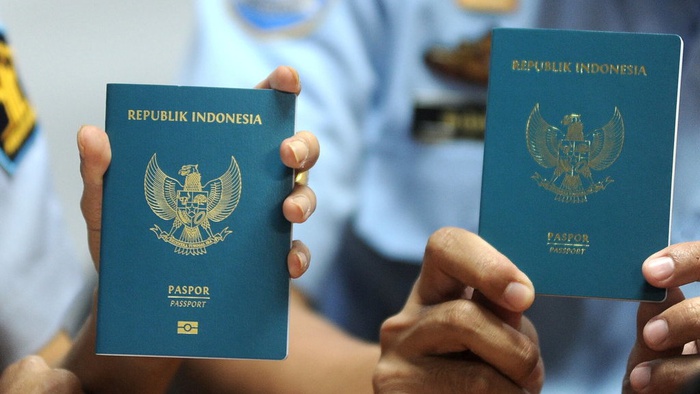In the realm of international travel, possessing a valid visa and passport remains an essential obligation for those embarking on journeys beyond their borders. Keeping stride with the rapid evolution of modern times, the Ministry of Law and Human Rights introduced the electronic passport (e-passport) in 2011. Notably, this technological innovation has enabled e-passport holders from Indonesia to venture into Japan without the need for a visa. But what are the distinct features that set this type of passport apart? Let’s delve into a comprehensive examination of its capabilities and benefits.
Visas, as widely understood, serve as official permissions issued by the destination country, granting individuals the authorization to enter. In contrast, a passport, as an internationally recognized travel document, is issued by the individual’s country of origin.
Beginning in 2011, the Ministry of Law and Human Rights unveiled the electronic passport as a response to the changing landscape of travel. Drawing from official information provided by the Directorate General of Immigration, Indonesia’s e-passport boasts an embedded chip housing biometric data. This innovation translates into a seamless experience for the holders as they navigate through designated auto-gates at airports.
Indonesia’s Immigration: Comparing Traditional Passport and e-Passport

- Comprehensive Data Integration One of the most prominent differentiators between traditional and electronic passports lies in the scope of data integration. Conventional passports primarily store personal identification information. However, electronic passports go a step further by incorporating biometric data. This advanced data subset includes facial recognition and fingerprint impressions of the passport holder.
- Financial Distinctions Another noteworthy contrast between the two passport categories pertains to the financial aspect. The financial disparities between traditional and electronic passports are remarkable. This cost differential has been meticulously outlined within Government Regulation Number 28 of 2019, governing the Types and Tariffs of Non-Tax State Revenues. To procure a conventional 48-page passport, an applicant would incur a fee of Rp350,000. In contrast, the issuance of an electronic 48-page passport carries a cost of Rp650,000. Additionally, those who seek expedited services for same-day passport issuance would pay an additional Rp1,000,000, exclusive of the standard passport issuance fee.
- Enhanced Autogate Access A significant distinction in the realm of passport features lies in the availability of autogate services. Traditional passports lack the chip infrastructure required for autogate access. Conversely, electronic passports, often referred to as e-pasports, come equipped with embedded chips, enabling easy autogate utilization. Autogate services stand as a pivotal tool for mitigating queue congestion during immigration checks. By leveraging autogate access, immigration personnel can process each passenger within a mere 35 to 45 seconds. In contrast, manual inspections for traditional passport holders consume an additional 30 seconds.
- Embedded Chip Integration A nuanced difference between the two passport categories manifests in the physical presence of the passport and its integrated chip. Although the physical appearance of both traditional and electronic passports might appear similar, a closer inspection reveals a pivotal distinction. The electronic passport’s integrated chip is reminiscent of the ones found in mobile SIM cards or ATM cards. This integrated chip plays a pivotal role in storing immigration-related data, encompassing identity particulars, facial characteristics, and fingerprint patterns of the passport bearer.
Indonesia’s Immigration: Advantages of Embracing the e-Passport
Both traditional and electronic passport holders can journey to Japan. However, traditional passport holders must navigate the visa application process prior to their travels.
For e-passport holders, an exceptional advantage unfolds – the privilege to venture into Japan without the need for a visa. This privilege stems from the fact that the chip housed within the e-passport cover aligns with the rigorous standards set forth by the International Civil Aviation Organization (ICAO).
E-passport holders enjoy the flexibility to embark on journeys to Japan for diverse purposes, including family visits, tourism, or business engagements. This flexibility extends to a 15-day stay, all within a three-year validity window.
As an imperative precursor to embarking on this visa-exempt journey, prospective travelers are advised to register their e-paspor details with the Japanese Embassy or Consulate-General in Indonesia.
Indonesia’s Immigration: Navigating the Requirements and Costs for Acquiring an e-Passport
Before embarking on the journey of obtaining an electronic passport, a set of prerequisites should be meticulously addressed:
- A valid national ID card (Kartu Tanda Penduduk or KTP) or an official letter verifying change of residence to a foreign country
- The family card (Kartu Keluarga or KK)
- Essential documents such as a birth certificate, marriage certificate, wedding documentation, academic certificates, or baptismal records
- Documentation affirming Indonesian citizenship for foreign nationals who have embraced Indonesian nationality, or declaration documentation in alignment with prevailing legal regulations
- For those who have undergone a legal name change, a valid decree issued by authorized officials must be presented
Importantly, the documents specified in point number 3 should mandatorily include the individual’s name, place and date of birth, as well as parental details. If any of these details are absent, an official attestation from the appropriate governing institution is imperative.
Further insights from Kompas reveal the financial aspect of acquiring a passport based on the specific type applied for:
- Conventional non-electronic passport, spanning 48 pages: Rp350,000
- The electronic passport (e-Paspor), with an expansive 48-page capacity: Rp650,000
- For those seeking accelerated passport issuance on the same day: Rp1,000,000





 20% off today. Whatsapp us!
20% off today. Whatsapp us!